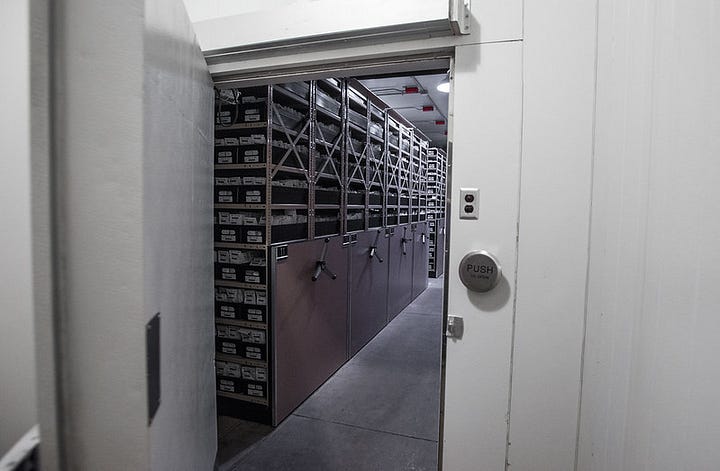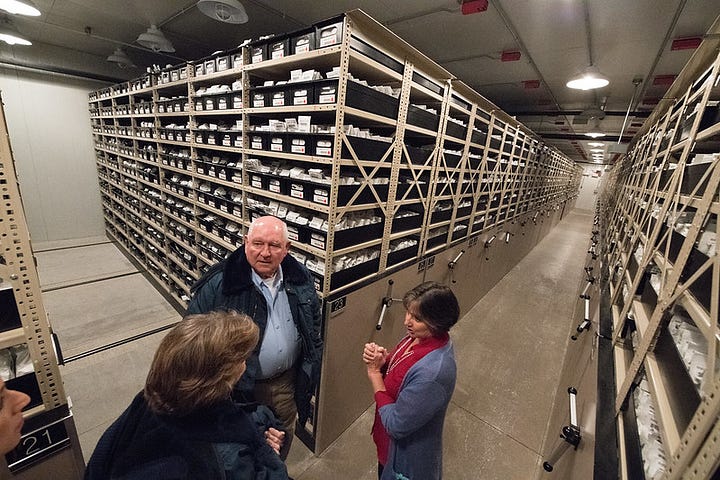Hello again,
While many inside the Department of Defense are struggling to justify the importance of their jobs or their missions and avoid the DOGE Bro’s chainsaw, Secretary of Defense Pete Hegseth may have just given the Space Force and other space-related defense programs a lifeline.
Instead of the main message being “cut, cut, cut”, when it comes to space defence capabilities it seems to be “invest, invest, invest.”

On Wednesday, March 19, in a lecture hall on Joint Base Andrews, Maryland, before a group of U.S. Air Force and U.S. Space Force senior leadership, Hegseth delivered a talk on the Trump Administration’s national security priorities, that prominently included investing in space capabilities.
According to DoD Public Affairs, Hegseth said, "I feel like there's no way to ignore the fact that the next and the most important domain of warfare will be the space domain. ... So, you're going to see far more investment from this administration into that domain, both offensively and defensively ... because that's where we can continue to maintain an advantage.”
The next day in an online interview, Space Force Chief of Space Operations Gen. Chance Saltzman said that investment would be directed to six categories of counterspace weapons. Generally, the first bucket includes ground-based jammers, directed energy, and kinetic capabilities, and the second bucket contains the same capabilities, but they would be on orbit.
But that talk of investment may meet with skepticism as Hegseth ordered the entire Defense Department enterprise to plan to slash costs by 8% every year for the next five years. Add to that, a number of folks in and out of government that I spoke with this week told me that the Space Force is reviewing contracts, and that some will be cancelled.
Maybe actions speak more loudly than words? This past week the Space Force Commercial Space Office “signed the first contracts to “pilot” its new Commercial Augmentation Space Reserve (CASR) program to companies providing space monitoring data,” according to Theresa Hitchens of Breaking Defense.

The four contracts, worth $1.1 million, are for three months of monitoring. The reason given for such a brief obligation, according to the story, is “bureaucratic and legal kinks”.
What will certainly receive government dollars and experience kinks, and is also the focus of this week’s episode, is the Golden Dome. Initially called the “Iron Dome for America,” the Trump Administration’s intent is to build a shield-like capability to protect the United States from intercontinental ballistic missiles and various hypersonic glide vehicles, which the United States believes China is developing or has developed.
Most folks in the know believe the Golden Dome will require placing defensive interceptor capabilities, essentially missiles on land, sea, and in the air and also on orbit. This would create what’s called a layered and distributed defensive capability.
This week’s guest explains why space-based interceptors, unlike those that would be fired from the planet’s surface, should be small, lightweight, and artificially intelligent. He said, AI would be critical, to ensuring that a network of these interceptors would still protect the homeland in the event communications with the ground are lost.

What’s in this episode
It doesn’t take much mass, just a fleck of paint, to punch a hole into a satellite or an intercontinental ballistic missile. This week’s guest thinks the technology for an AI-controlled space-based kill vehicle, that is also small and lean enough to make room for the fuel needed for speed, is close at hand if the Department of Defense wishes to seize it.
Who’s in this episode
Arno Ledebuhr - Physicist and Technologist, Lead Seeker/Vehicle Architect, Wyzkyds Consulting; former Program Leader, Lawrence Livermore National Laboratory (Strategic Defense Initiative, Brilliant Pebbles, Clementine, and much more under Lowell Wood and Edward Teller.
Reading


“Why Did Elon Musk Go After Bunkers Full of Seeds?” - Iago Hale and Michael Kantar, New York Times, March 22, 2025
“The Office That Won the Cold War, RIP” - The Editorial Board, Wall Street Journal, March 16, 2025
“Amy Coney Barrett's Family Had Strange Pizzas Sent to Their Homes” - Jenna Sundel, Newsweek, March 13, 2025
“NICOLAS TALBOTT, et al, Plaintiffs, v. UNITED STATES, et al, Defendants” - Injunction Ruling, United States District Court Judge Ana C. Reyes, United States District Court For The District Of Columbia, March 18, 2025
“What happens when DEI becomes DOA in the aerospace industry?” - Eric Berger, Ars Technica, March 13, 2025
“Chairman Rogers, Chairman Wicker Joint Statement on Reports of Potential Combatant Command Changes” - U.S. Representative Mike Rogers (R-AL), Chairman of the House Armed Services Committee, and U.S. Senator Roger Wicker (R-MS), Chairman of the Senate Armed Services Committee, House Armed Services Committee, March 19, 2025
“Dale Strong ‘bullish’ that Huntsville will soon become U.S. Space Command’s final headquarters destination” - Mecca Musick, Yellowhammer, March 18, 2025
“NASA’s Ever-Changing Artemis Crew Tagline” - Keith Cowing, NASA Watch, March 22, 2025
“China Is Building a Solar Station in Space That Could Generate Practically Endless Power” - Emma Frederickson, Popular Mechanics, March 12, 2025
Have a great week!
Ad Astra!
Laura













